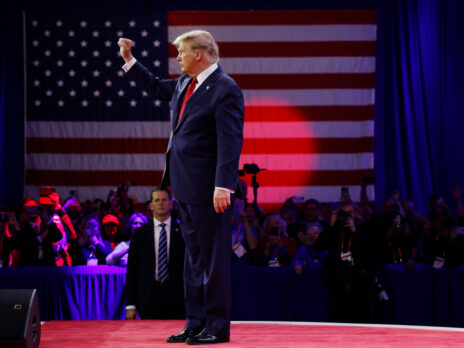
If you’re kidnapped by al-Qaeda or its affiliates, your best hope could be having a French passport. That at least is one conclusion you can draw from the New York Times’ brilliant investigation into ransom payments. The newspaper has found that al-Qaeda and its direct affiliates have earned at least $125m in ransom payments, of which $66m was paid in the last year.
The vast majority of these payments have been made by European governments, who usually try and cover their tracks by funnelling money through a “network of proxies”, sometimes disguising it as development aid. So if you’re a French hostage, you stand a better chance of your ransom being paid than if you’re American or British: both of these countries seem more likely to resist paying up.
The result of these differing policies is clear: “While dozens of Europeans have been released unharmed, few American or British nationals have gotten out alive. A lucky few ran away or were rescued by special forces. The rest were executed or are being held indefinitely.”
In May 2009, four tourists in Mali were kidnapped: a German woman, a Swiss couple and a British man named Edwin Dyer. The Swiss and German nationals were released after their governments paid a ransom, but Dyer was killed on 31 May by his kidnappers, al-Qaeda of the Islamic Maghreb.
The ethics of ransom payments are complex however. European governments have now paid so much money to the terrorist organisation that they are, in the words of the New York Times article, effectively an “inadvertent underwriter of al-Qaeda”. According to the newspaper, France has given $58.1m in ransom payments to al-Qaeda, Qatar and Omar have given $20.4m, Spain $12.4m and Austria $11m. Paying ransoms encourage kidnapping, by making it a profitable business, and funds terrorism. On the other hand, refusing to pay up often means an innocent civilian dies, particularly as rescue missions are often deadly and sometimes impossible.
What is clearer, however, is that an inconsistent strategy, such as the one currently employed by western governments, is the worst of both worlds. It means that al-Qaeda still have a financial incentive to kidnap tourists, journalists and aid workers, but hostages can’t be confident that their governments will hand over money to secure their freedom. For the family of a hostage killed in captivity, the idea that their death is part of a broader strategy to discourage kidnapping is no real consolation, but far worse that they should die because of a poorly-enforced and therefore ineffective policy.
It’s hard to prove if the US and UK really are less likely to pay ransoms (perhaps they cover their tracks much better) but the recent pattern of hostage-taking suggests the New York Times conclusions are correct.
Of the 53 hostages taken by al-Qaeda in the past five years a third were French, and 20 per cent were from Austria, Spain and Switzerland. In contrast, only three are American. This suggests that al-Qaeda is targeting citizens of countries more likely to pay up.
So, should you decide to go hiking in Yemen or sailing off Somalia (which you definitely shouldn’t) having a US or UK passport might make you less likely to be kidnapped than someone with a French or Swiss one. Then again, if you are held hostage, the consequences are likely to be worse.





